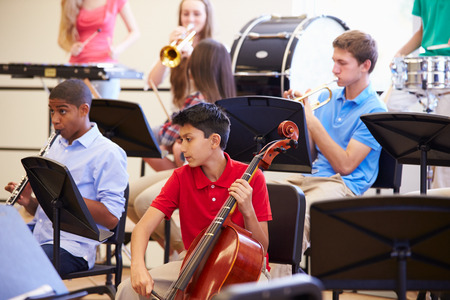New Canadian research has found that high school students who take music classes perform better in more “academic” subjects such as math and science than non-musical students.
Carried out by researchers at the University of British Columbia, the new study looked at 112,916 school records for students in British Columbia who started the first grade between 2000 and 2003 and had completed the last three years of high school, including at least one standardized exam for math, science or English in the 10th or 12th grade.

However, the researchers did not include general music as it does not require making or practicing music, or guitar courses as they required no previous music experience.
The findings, published by the American Psychological Association in the Journal of Educational Psychology, showed that students who participated in music courses who had higher achievement in music and who were highly engaged in music also had higher exam scores in math, science and English.
Not only did the researchers find that these associations between music and exam performance strong, but they were also consistent across all three subject areas and continued to be significant even after the researchers had controlled for demographic factors such as gender, ethnicity and socioeconomic background.
The team also found that the associations were stronger for those who took instrumental music than vocal music courses.
“On average, the children who learned to play a musical instrument for many years, and were now playing in high school band and orchestra, were the equivalent of about one academic year ahead of their peers with regard to their English, mathematics and science skills as measured by their exam grades,” said study author Peter Gouzouasis, Ph.D.
“It is believed that students who spend school time in music classes, rather than in further developing their skills in math, science and English classes, will underperform in those disciplines. Our research suggests that, in fact, the more they study music, the better they do in those subjects,” Gouzouasis added.
“Learning to play a musical instrument and playing in an ensemble is very demanding,” he explained. “A student has to learn to read music notation, develop eye-hand-mind coordination, develop keen listening skills, develop team skills for playing in an ensemble and develop the discipline to practice. All those learning experiences play a role in enhancing children’s cognitive capacities and their self-efficacy.” HM/JB
RELATED STORIES:
LOOK: Old Pokémon cards being sold for as high as P346,000 online
Instagram influencers under fire for asking strangers to fund their travels